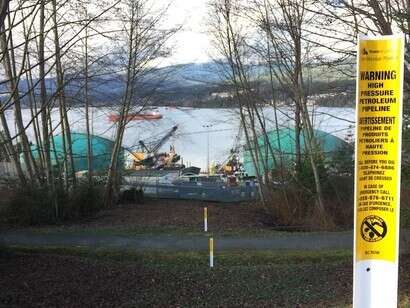The past month has brought sweeping, unprecedented change as individuals, communities and nations around the world struggle to deal with the COVID-19 pandemic.
Efforts to contain the virus include significantly increased government powers and corresponding limits on civil liberties, as well as disruptions to individuals’ ability to work, socialize and care for one another.
In Canada, Indigenous Peoples stand to be disproportionately affected by both COVID-19 and government measures intended to limit its spread. These impacts are a direct result of the historic and ongoing process of colonization. Below, we highlight some of the key issues raised by our clients and other Indigenous groups as the pandemic situation evolves.


Health & Culture
It is widely acknowledged that Indigenous Peoples are more likely than other Canadians to experience severe health outcomes as a result of COVID-19.
Indigenous communities have, on average, higher percentages of members with pre-existing health issues, families living in substandard and overcrowded housing, and lack of access to clean drinking water and adequate medical services.
These factors are exacerbated by the historic trauma of the introduction of infectious diseases to Indigenous communities by Europeans, and by the fact that Indigenous societies place a priority on respecting and learning from Elders, who in turn are particularly vulnerable to COVID-19.
Critically, the factors that contribute to Indigenous communities’ susceptibility to COVID-19 are not new – they are well-known issues which exist as a consequence of decades of action, or inaction, on the part of the federal and provincial governments to ensure the health and wellbeing of Indigenous Peoples.
Indigenous Peoples are also uniquely affected by social distancing requirements intended to slow the spread of the virus.
Health professionals have issued warnings that communities should temporarily halt cultural activities such as sweat lodges in order to avoid transmitting the disease to Elders or other vulnerable members.
While necessary for health reasons, these directions run contrary to Indigenous Peoples’ approach to relying on familial and community support in times of crisis, and make it more difficult for communities to maintain ties to their cultures and traditions. It also imposes new challenges for Indigenous Peoples seeking to exercise their own laws and maintain traditional governance systems.
Title & Rights
In response to the COVID-19 pandemic, many First Nations have closed their band offices, restricted access to their communities and otherwise diverted resources to deal with pressing health concerns.
At the same time, First Nations are reporting that the Crown and proponents continue to send referrals for resource development projects in their territories. These ongoing operations increase the risk of the pandemic undermining Indigenous Peoples’ efforts to safeguard their ancestral lands for the use and benefit of current and future generations.
Some provincial governments have issued interim guidelines for consultation which direct Crown decision-makers to take into account First Nations’ ability to respond to referrals in light of the pandemic.
Overall, however, the Crown has yet to clarify how it will protect Indigenous Peoples’ title and rights during the COVID-19 crisis, and in particular, whether it will continue to make decisions which could affect those rights at a time when First Nations cannot meaningfully participate in consultation.
More broadly, the Crown and industry should not use this time as an opportunity to advance projects on Indigenous lands in the absence of proper consultation. This is especially important given that many courts in Canada have limited or suspended hearings, resulting in potential delays in Indigenous Peoples’ ability to challenge government decisions which affect their title and rights.


Photo Caption: www.gotcredit.com
Resource Development & Work Camps
Indigenous Peoples have repeatedly raised concerns about risks associated with industrial development on their ancestral territories during the pandemic, including the risk that transient workers in remote industrial camps will spread the coronavirus to their communities.
The former Chief Medical Health Officer for Northern Health in B.C. has likened the work camps to “land locked cruise ships” which, if not shut down, will become “COVID-19 incubators” which will place both workers and local communities at heightened risk.
The need for urgent action on this issue was highlighted last week, when a worker at LNG Canada’s planned export facility in Kitimat, the intended end-point for the Coastal GasLink pipeline, tested positive for COVID-19.
To date, the Crown has largely ignored Indigenous Peoples’ concerns about this issue. Instead, large-scale industrial projects have been designated as “essential services.” As a result, resource projects, including the contentious Coastal GasLink pipeline and Trans Mountain expansion project, are proceeding despite the recognized health risks posed to Indigenous communities.

Looking Ahead
Less than six weeks ago, national headlines were dominated by the dispute between Wet’suwet’en Hereditary Chiefs and the Coastal GasLink pipeline project. Indigenous organizations and legal professionals across Canada highlighted the significant underlying legal issues associated with the dispute, including the outstanding issue of who has the right to make decisions on lands subject to Indigenous title.
This dispute has not gone away, nor is it resolved. Indigenous Peoples remain committed to protecting their lands and their rights, regardless of the challenges posed by the pandemic.
Whatever the circumstances, the Crown remains obligated to act honourably towards Indigenous Peoples.
In the current situation, the Crown must take immediate steps to ensure proper, equitable access to health care for Indigenous communities.
Just as crucially, the Crown must ensure that industrial development does not proceed unchecked while First Nations scramble to protect their most vulnerable members from the potentially devastating impacts of COVID-19.
The Crown has a choice in how it addresses Indigenous issues in the face of the pandemic. Its response could replicate Canada’s history of introducing disease and disregarding Indigenous concerns, or it could build a new path forward that supports Indigenous Peoples in a way that is responsive to and respectful of their specific priorities and issues, including the overriding importance of protecting their title, rights and ancestral lands.
Like the rest of Canada, Indigenous Peoples are being asked to make difficult sacrifices in the name of our collective health and wellbeing. They should not also be forced to choose between protecting their members’ health and their continued ability to exercise their title and rights.
Kate Gunn is a lawyer at First Peoples Law Corporation. Kate completed her Master's of Law at the University of British Columbia. Her most recent academic essay, "Agreeing to Share: Treaty 3, History & the Courts," was published in the UBC Law Review.
Follow Kate on LinkedIn and Twitter
For more First Peoples Law analysis, visit our blog
Sign up for our Aboriginal Law Report

